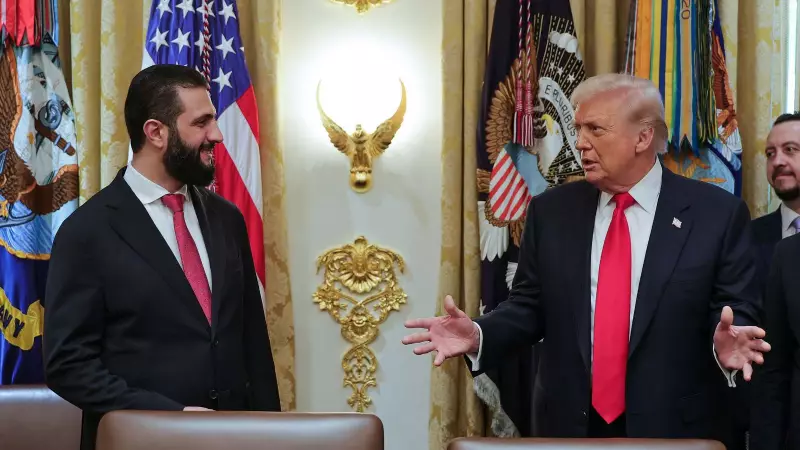
In a revealing diplomatic encounter that showcased Donald Trump's unconventional approach to foreign relations, the former US president posed a surprisingly personal question to Syrian leader Bashar al-Assad during their White House meeting. The interaction, which has recently come to light through detailed accounts, demonstrates the unique dynamics that characterized Trump's presidency.
The Unusual Exchange Between World Leaders
During what was supposed to be a serious discussion about Middle Eastern politics and bilateral relations, Trump diverted from conventional diplomatic protocol by asking Assad about his marital status. The former president directly inquired "How many wives?" to the Syrian leader, creating a moment of unexpected personal curiosity in the midst of high-stakes international diplomacy.
The meeting occurred at the White House, the traditional setting for presidential engagements with foreign dignitaries. However, the tone and content of this particular interaction stood in stark contrast to the formal nature typically associated with such high-level diplomatic encounters. Both leaders were accompanied by their respective delegations, making the personal nature of Trump's question even more noteworthy.
Context of US-Syria Relations
The encounter between Trump and Assad took place against a complex backdrop of strained relations between the United States and Syria. Bashar al-Assad has led Syria since 2000, following his father Hafez al-Assad's death, and his presidency has been marked by significant international controversy, particularly during the Syrian civil war.
What makes Trump's question particularly intriguing is the personal history of both leaders. While Trump has been married three times—to Ivana Trump, Marla Maples, and Melania Trump—Assad has been married only once to Asma al-Assad, formerly Asma Akhras, a British-Syrian national. The Syrian first lady has been a visible figure throughout her husband's presidency, often participating in public events and maintaining a profile distinct from traditional Middle Eastern political spouses.
Diplomatic Implications and Reactions
The unusual question about marital status represents more than just casual curiosity—it reflects Trump's distinctive approach to international diplomacy, where personal relationships and individual characteristics often took precedence over traditional diplomatic protocols. This style frequently characterized his interactions with world leaders, from close allies to historical adversaries.
Political analysts have noted that such personal inquiries, while unconventional, sometimes served as Trump's method of establishing rapport with other leaders. However, in the context of US-Syria relations, which have been particularly tense due to Syria's civil war and allegations of human rights violations, the question about Assad's wives struck many observers as particularly jarring.
The meeting occurred during a period when Syria remained largely isolated from Western nations due to ongoing conflicts and international sanctions. That Trump would engage with Assad directly, and in such personal terms, signaled a potential shift in approach, though the broader policy implications remained unclear.
Broader Significance in International Diplomacy
This revelation about the Trump-Assad interaction adds to our understanding of how personal dynamics can influence international relations. The former president's tendency to focus on personal characteristics and relationships—whether with North Korea's Kim Jong-un, Russia's Vladimir Putin, or other world leaders—has been well documented, but the specifics of this exchange with Assad provide another data point in this pattern.
What remains particularly noteworthy is how such personal questions fit within the broader context of US foreign policy toward Syria. During Trump's presidency, the US maintained a complicated position on Syria, involving military engagement against ISIS while navigating the complex web of regional alliances and rivalries.
The question about Assad's wives, while seemingly trivial on its surface, ultimately reflects the unpredictable nature of diplomatic engagements during the Trump administration. It underscores how personality-driven approaches can sometimes overshadow traditional state-to-state relations, creating moments that defy conventional diplomatic expectations.
As historians and political scientists continue to assess the impact of Trump's unconventional diplomatic style, exchanges like this one with Assad will likely feature prominently in analyses of how personal relationships and idiosyncratic approaches can shape international politics in unexpected ways.





